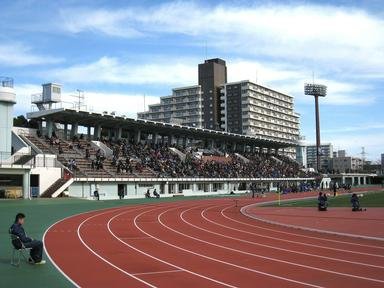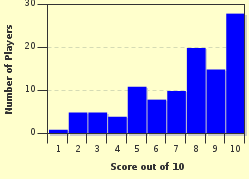Quiz Answer Key and Fun Facts
1. North America's oldest road race is held in which Canadian city?
2. What is the technical meaning behind 'Fartlek'?
3. Which obscure location has not been home to a marathon?
4. Which Canadian figure proposed to complete his Marathon of Hope in 1980?
5. Which of these in a technical sense is not cross-training?
6. Athletes running an Ironman Triathlon will run a marathon as part of their event.
7. 'Hitting the Wall' involves a lack of which bodily material?
8. On Patriots' Day, which American marathon is hosted?
9. An Olympic Decathlon will typically involve how many strictly-running events (excluding Hurdles)?
10. An Ultramarathon can be 100km in length.
Source: Author
kyleisalive
This quiz was reviewed by FunTrivia editor
Nightmare before going online.
Any errors found in FunTrivia content are routinely corrected through our feedback system.

